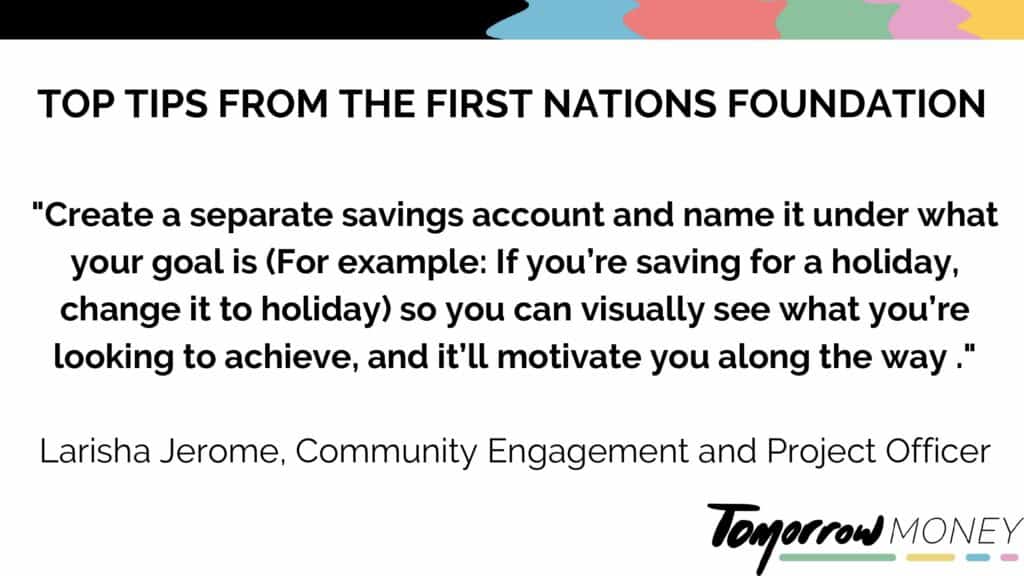Creating a money goal
First Nations Foundation
- Womens

Everyone has different ideas about what they’d like to spend their money on.
For some, it’s a nice holiday to the beach. For others, it may be a new car. For others still, it may be helping family with a specific project.
Working out what that ‘thing’ is can help to start you on the path towards a money goal. It starts with the target, then a series of small steps until the goal is realised.
What is a money goal?
It’s simply something you wish to buy or experience that is not immediately accessible and must be saved for.
Setting a goal
One of the leading frameworks in goal-setting is the SMART principle. It provides some guidelines for choosing money targets that are achievable. According to the principle, goals should be:
– SPECIFIC – A goal should be targeted enough that you’ll really want to save for it.
For example, saying I’d like to go for a holiday somewhere sunny may not be encouraging enough to get me to save. Saying I’d like to go to the Great Barrier Reef makes it easier to stick to the goal because I can visualise it.
– MEASURABLE – This sets out the steps needed to get to the goal.
An example may be: “I will put aside $50 a week for a year”.
– ACHIEVABLE – It’s important to make sure goals are possible to get to within the timeframe set.
If I were to say, I’d like a buy a house by next year, that goal may not be achievable for me. However, if I said I’d like to in the next five years, it may be.
– RELEVANT – This is about how goals align with values and other parts of your life.
For example, if the most important thing to you is spending time with family, it makes sense to include them in your goals and plans.
– TIME-BOUND – Having a timeframe in mind can help hold people to account when it comes to their goals.
If I know I want my goal to become a reality in one year, my actions will be geared around that. For example, I may save more than I otherwise would so that I can reach it.
Let’s look at that in practice via a case study.
A case study: Jack’s family holiday
Jack is 24-years-old and has recently started working as a customer service officer for a large institution.
While he enjoys his job, he has been working hard and has decided to book a holiday for the following year for his mum, his sister and himself.
Jack decides he wants to go to the Gold Coast for one week. He plans to drive and stay in a holiday rental apartment and calculates it will cost $2800.
Jack has just over six months to save and decides to put aside $50 a week for his trip.
By the time the holiday comes around, Jack has paid for most of it and can enjoy the time with his family.
This article is not personal financial advice.
Let us know if you liked this article
Let us know if you liked this article





